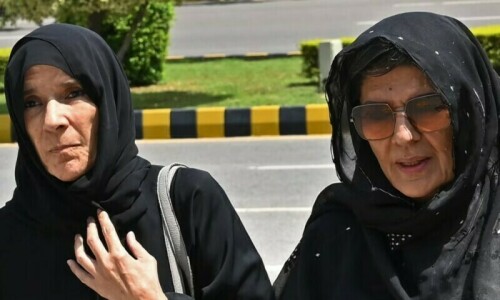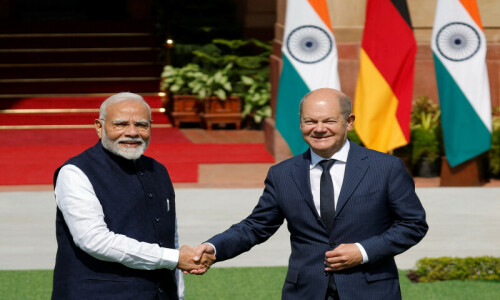Focusing on human development is considered to be an incredibly significant factor that not only accelerates economic growth but also promises a better quality of life for the public at large. Ensuring persistent and efficient spending on human development helps build up an educated and healthy workforce, increase productivity and growth, the benefits of which are equitably distributed.
In order to determine the level of human development in a country, three main components — per capita income, level of education and the level of health — need to be gauged.
Unfortunately, Pakistan, a low-income nation, has been performing quite abysmally in these social indicators. Decades of inconsistent and incoherent economic policies adopted on the part of successive political setups have inevitably resulted in deteriorating quality of education, worsening health infrastructure and declining per-capita income.
According to the United Nations Human Development Index (HDI) 2020, Pakistan’s ranking stood at 154th among 189 countries, lower than all regional peers. Worryingly, the dismal performance of Pakistan in social indices indicates structural impediments grappling with the economic governance of the country.
The government expenditure on education must be enhanced to 2.5pc from 2pc of the GDP with greater efficiency in spending
Education has remained one of the highly neglected social services in Pakistan as the state has failed to ensure the effective provision of free and quality education equally accessible to all and sundry. About a third (20 million) of children in Pakistan are out of school, depriving them of an opportunity to become literate and productive members of society. As per Article 25A of the Constitution of Pakistan, all children of age five to 16 years must be provided free and compulsory education. This so far seems to be an elusive dream.
Hafiz A. Pasha, in The Charter of the Economy, laid out policy recommendations that are indispensable to reform the educational system in Pakistan. One, 100 per cent net enrollment of boys and girls in primary, middle, and secondary education is imperative which will massively increase literacy. Two, instead of establishing new public universities, there is a greater need to emphasise recruiting highly qualified faculty staff that can impart education of high standards, in line with the ever-changing educational dynamics of the 21st century.
Three, since government expenditure on education, is 2pc of GDP, undermining its ability to ensure the development of critical infrastructure, it must be enhanced to 2.5pc with greater efficiency in spending. Not only this, effective governance — checking teacher absenteeism, ensuring availability of sufficient teaching materials, building school infrastructure— will also play an instrumental role in turning around the education sector in an unparalleled manner. Besides, the state should work out a plan to provide technical and vocational education to students in an attempt to equip them with market-demanded skills, expertise, and qualifications.
There is no denying that the health system also confronts several challenges that have been compounded in the wake of Covid-19. It is increasingly observed that health crisis has become a potent threat to national progress, curtailing the potential of the country to emerge as a prosperous nation in a global village.
Being a victim of the highest infant mortality rate in South Asia with the lowest life expectancy, Pakistan has been facing one of the worst health crises. What is worrisome is massively unequipped infrastructure: a) far too few hospital beds — six per 10,000 population; b) doctor to patient ratio — 1:1300; and c) declining population coverage by child centres, maternity, and dispensaries (PBS survey).
In an attempt to improve the health sector, a national health policy needs to be effectively crafted and vigorously executed at the national, provincial, and local government levels. With the exponential growth of the population facing Pakistan, health facilities have to be increased. For that to be realised, provincial governments ought to augment their health sector allocation to at least 1.5pc of GDP, particularly development expenditure, as health is a provincial subject after the 18th amendment to the Constitution of Pakistan.
While mobilising Lady Health Workers (LHWs) to ensure greater coverage of vaccinations is needed, it is equally important to encourage inculcating necessary education on family planning in women. Moreover, primary healthcare (PHC), a basic foundation of a health institution, has to be strengthened so that fundamental health services in the shape of treatment of health conditions, and minor health issues at a community level can be dealt with timely. In order to improve PHC, the incumbent government will have to devolve administrative and financial powers to the third-tier of government.
The daunting economic crisis invites the attention of a ruling cliché to carry out a robust agenda for economic reforms that can bring about a rise in economic growth, improve social indicators, do away with growing public discontent over skyrocketing inflation, soaring joblessness, and most alarming, decay of economic governance.
Published in Dawn, The Business and Finance Weekly, December 6th, 2021













































